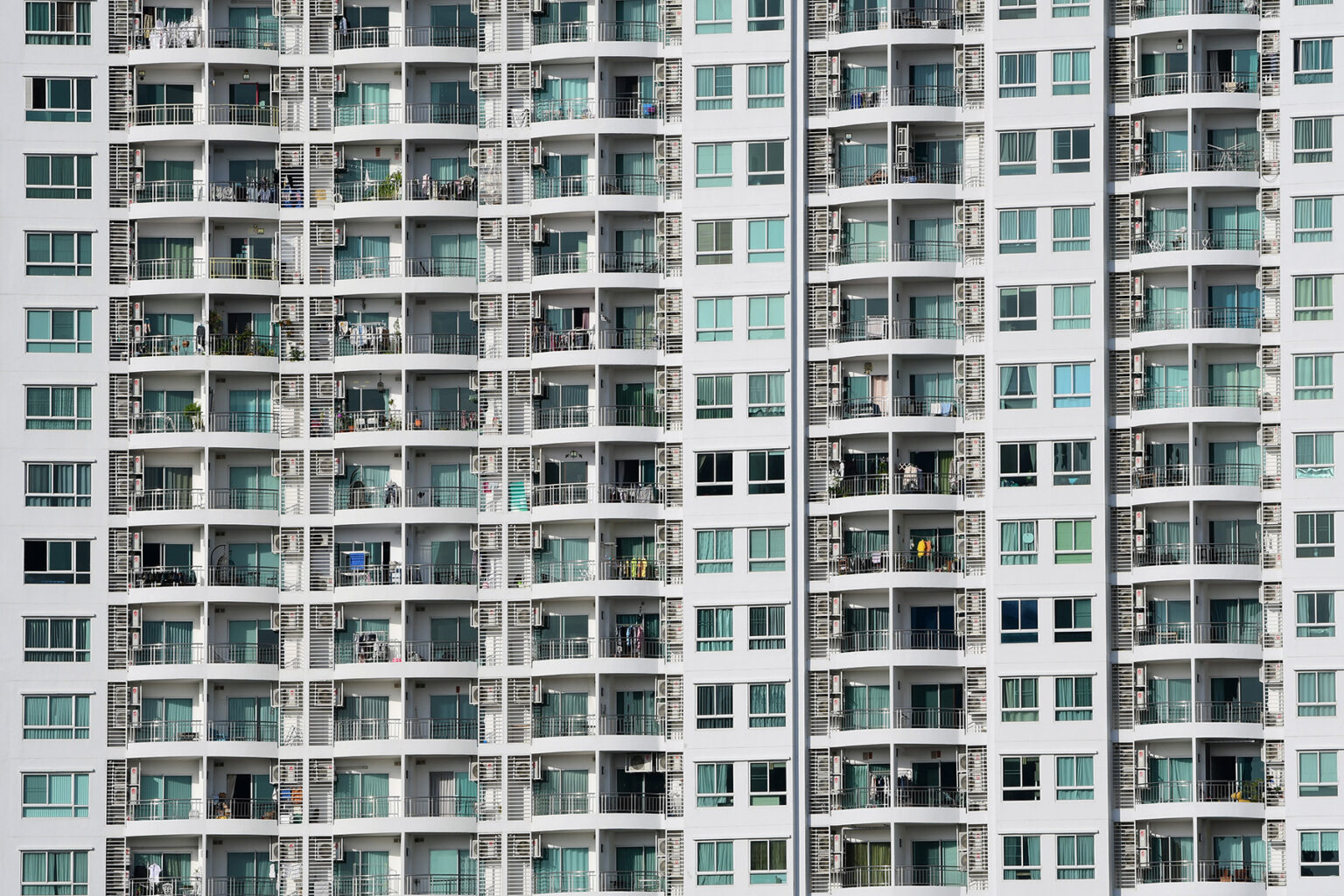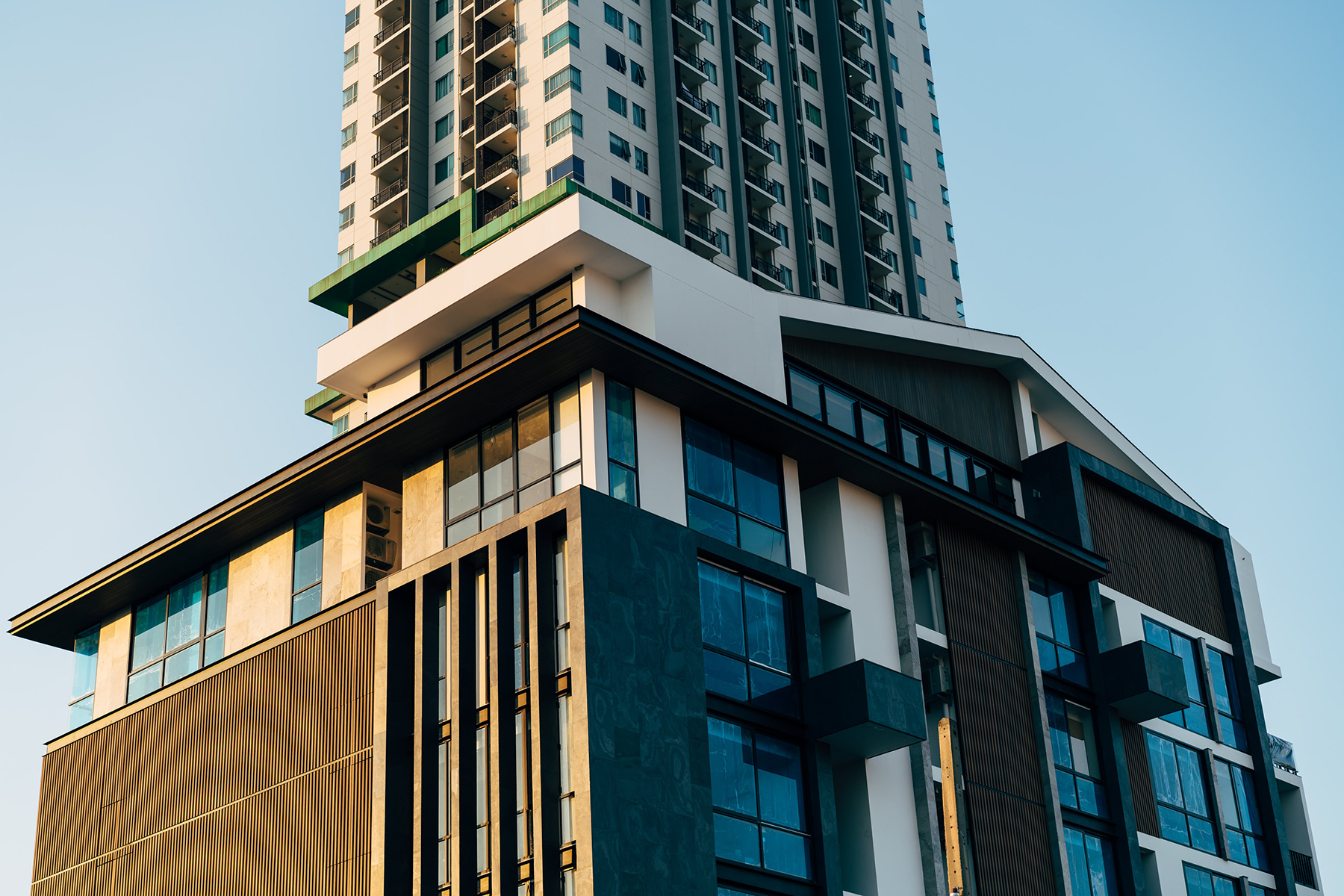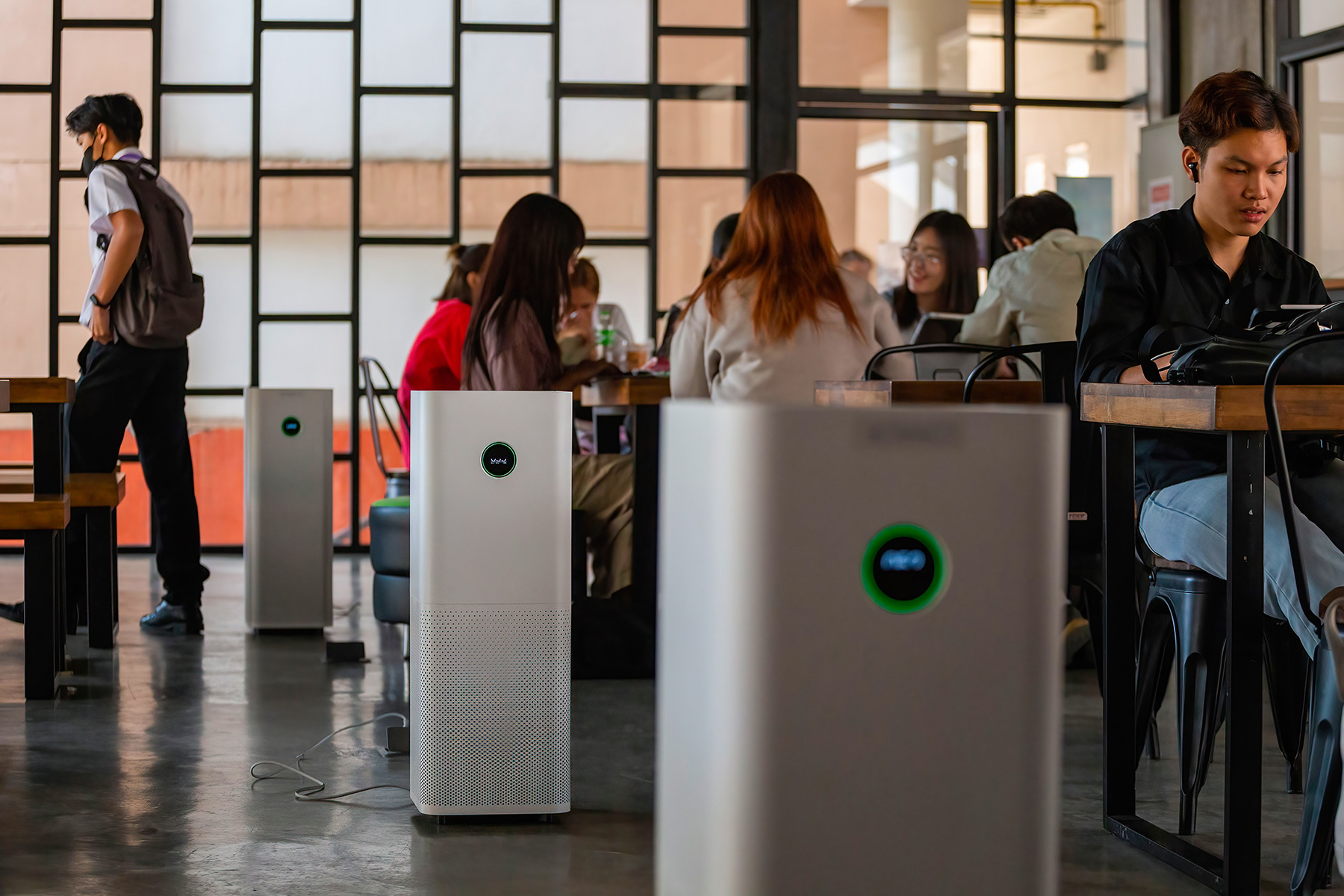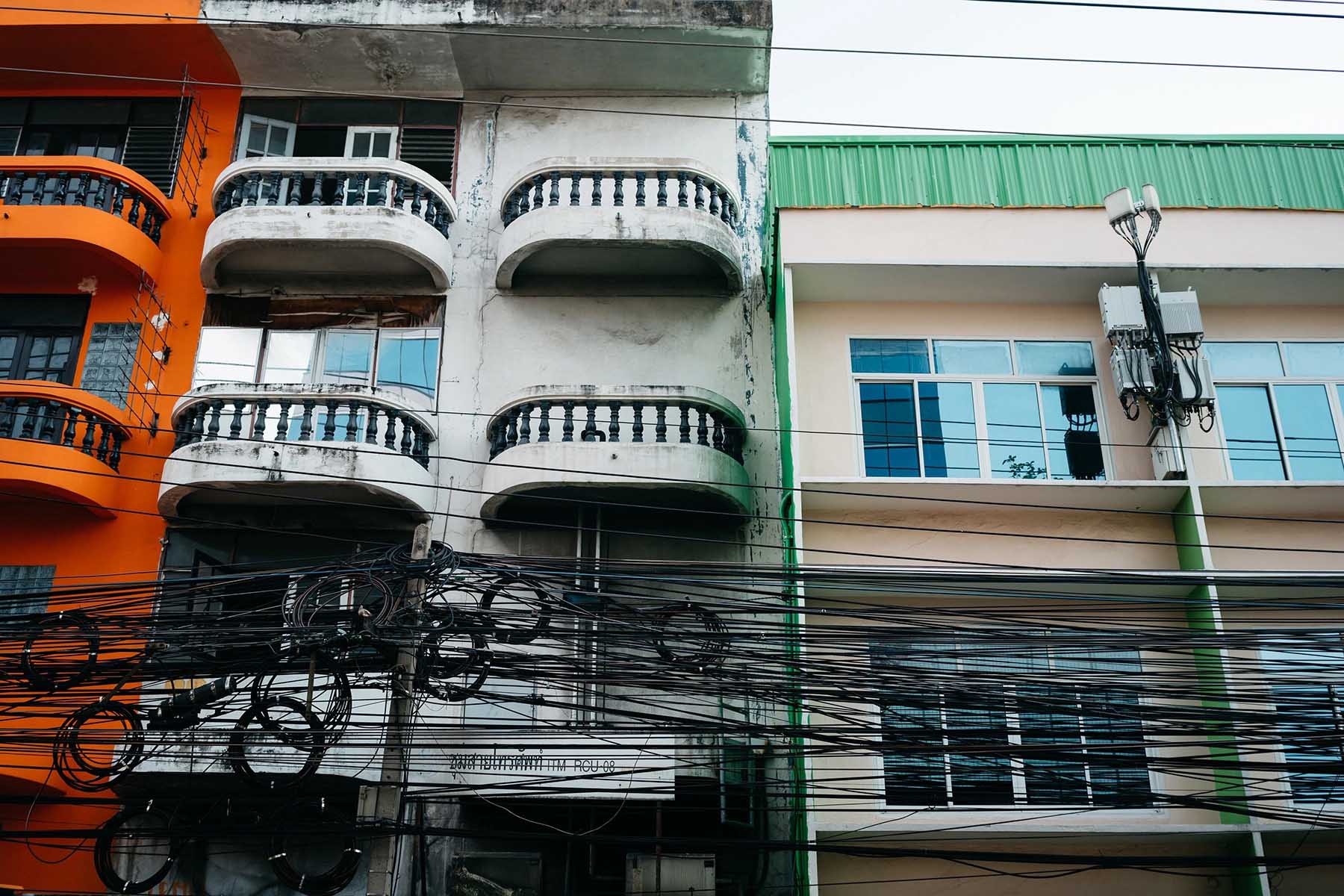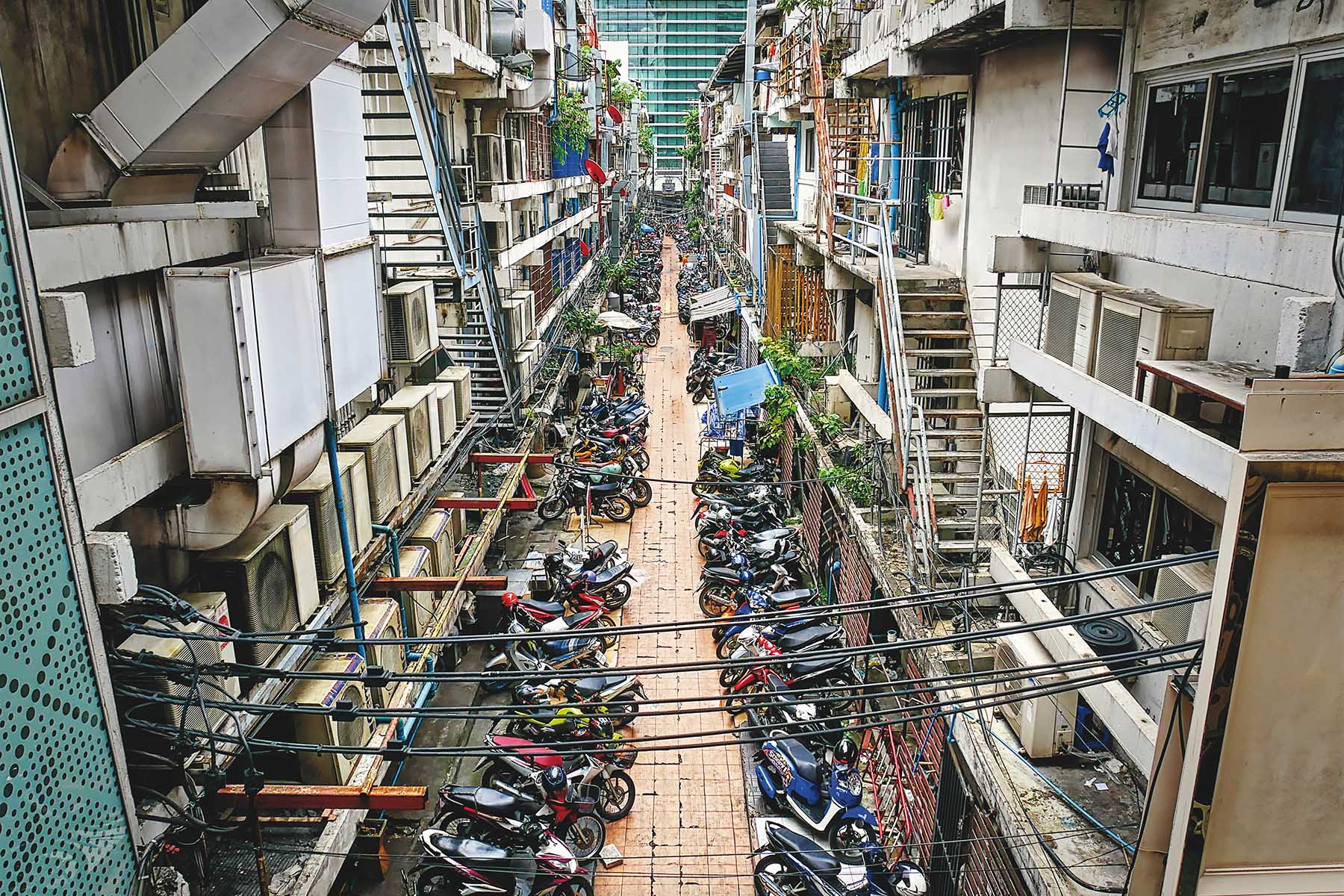Thailand is a unique country with bustling cities, restful mountain towns, and laidback beach resorts. If you’re moving to Thailand, you can make that move smoother by getting to know the properties available. It all begins with choosing a location and adding up the costs. This article explains the basics of renting in Thailand if you decide to settle.
Learn how to find a rental and what to expect from your lease contract in Thailand with the following topics:
- Is renting popular in Thailand?
- Where to rent in Thailand
- Buying vs renting in Thailand
- Types of property to rent in Thailand
- How to find a place to rent in Thailand
- Student housing to rent in Thailand
- How to rent a property in Thailand
- Rental costs in Thailand
- Social housing in Thailand
- Rental housing laws in Thailand
- Utilities and telecommunications in Thailand
- Moving in and out of your rental property
- Renting out your home in Thailand
- Tips for renters in Thailand
- Useful resources
Is renting popular in Thailand?
Most Thai people (73%) own the property they live in. This is lower than some nearby countries, like Vietnam (88.1%), but slightly above the European Union average (70%). These statistics differ from place to place, with cities like Bangkok seeing more renters than elsewhere (PDF) in Thailand. What’s more, rising property costs are pushing more young adults to rent.
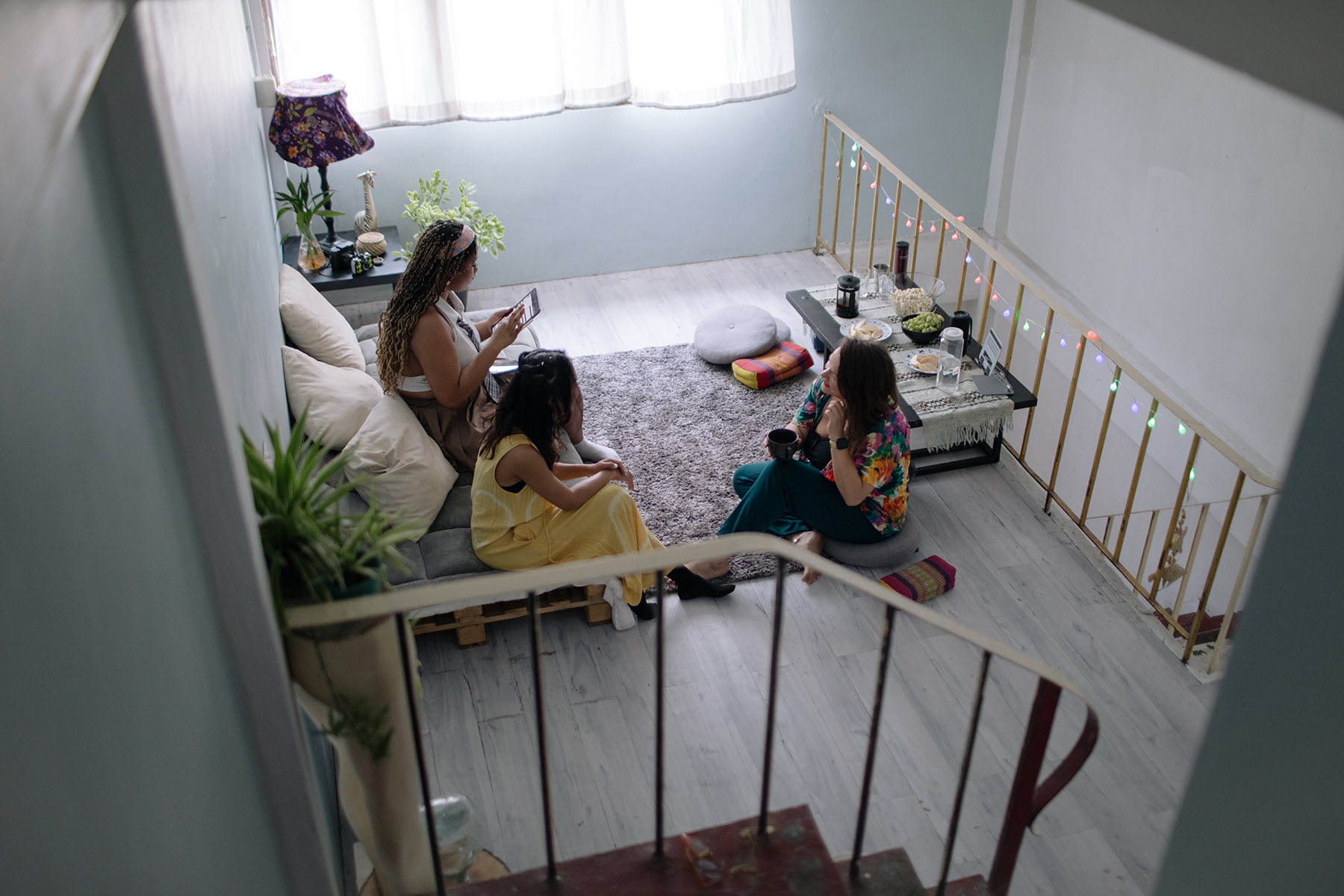
While homeownership may be a Thai norm, expats are more likely to rent their homes. This is due to strict laws that limit land ownership to Thai citizens only. Furthermore, Thailand’s expat population is growing. As a result, high-income migrants dominate the rental market in many areas of the country.
Where to rent in Thailand
Multiple Thai cities and towns boast significant foreign-born populations and offer long and short-term rentals.
Bangkok
Thailand’s capital, Bangkok, is home to over 11 million people and is one of the most popular places to live for internationals. As the country’s economic center, it’s home to major businesses and international schools that attract new arrivals.
When looking at where to live in Bangkok, many expats choose to move to Sukhumvit, Sathorn, and Lumpini. These areas have access to the BTS Skytrain and a wealth of local amenities.
Bangkok is the most expensive place to live in Thailand, with higher rents and day-to-day costs than other cities. However, these costs can vary across its 50 districts. According to Numbeo surveys, monthly rents for a one-bed apartment in the city center range from ฿18,000–45,000. You can find your dream apartment through a local Bangkok realtor – some that cater to internationals include 1D and Sense Property.
Chiang Mai
Chiang Mai is home to around 160,000 foreign nationals (PDF in Thai, figure from 2022). Surrounded by forests, temples, and mountains, the city is growing and is home to prestigious international schools and shopping centers. As a result, there are a range of properties here.
The cultural center, Si Phum, is one of the most expensive districts. You’ll find cheaper rentals outside of this gated old city area. Popular areas include Nimmanhaemin and Wat Ket.
Most expats choose to rent in Chiang Mai, where luxury condominiums are cheaper than their Bangkok equivalents. While there are generally fewer high-rise buildings here than in large Thai cities, Chiang Mai has seen a boom in urban development. Rental prices are also increasing, with the average condo costing about ฿15,000.
Phuket
Thailand’s largest island is home to Phuket City and a wealth of smaller beach towns. While geared to the tourist industry, Phuket is also a popular expat destination, especially for retirees. Many internationals choose life in the bustling city, but other popular areas include Rawai and Karon.
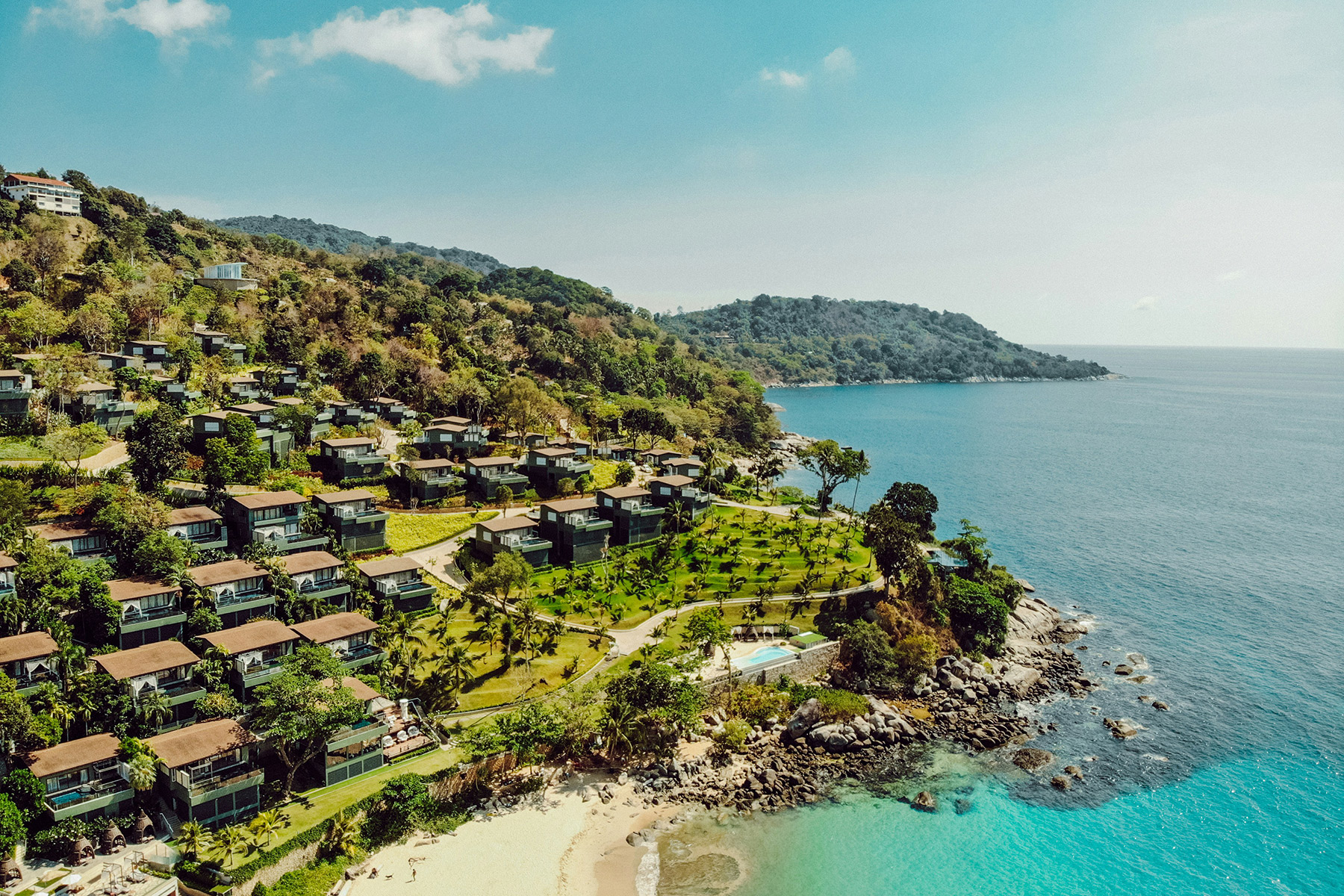
Phuket is an affordable rental destination with detached homes available from about ฿20,000 per month. The most expensive property rentals are based within popular tourist areas and beauty spots. After all, Phuket is increasingly attracting a wider range of foreign investors in luxury property. Some popular local realtors include Phuket Realty and JTFB.
Buying vs renting in Thailand
Most new arrivals to Thailand choose to rent an apartment. This allows them to find their feet and explore where to live. What’s more, expats based in larger cities like Bangkok are far more likely to rent. Finding a short-term rental can give you the freedom to discover new locations and living preferences.
If you are relocating to Thailand more permanently, you might consider purchasing a property. While strict laws prevent foreigners from buying land, the country is currently experiencing a foreign investment boom in condominiums.
Alternatively, you could lease land instead of owning it, or if your partner is Thai, they may purchase it under their name.
Whatever you decide, renting is a good first step in familiarizing yourself with Thai properties.
Types of property to rent in Thailand
While most Thai people live in detached homes, there are various accommodations to rent in the country. It’s worth getting to know the different types of Thai housing so you know what’s available. Your options may include:
- Furnished apartment complexes – Most short-term residents choose to live in these buildings, especially in cities like Bangkok.
- Condominiums (อาคารชุด) – These are apartment buildings with shared ownership. They are the only property that foreigners can legally purchase with few restrictions. As a result, they are commonly rented both to and by expats. They can be very luxurious, with top-notch amenities such as swimming pools, cinemas, and gyms. Condominiums usually have cooking facilities and more than one room.
- Apartments (ห้องอยู่อาศัย) – This term refers to leasehold properties in Thailand, which are usually owned by real estate companies rather than individuals. They may be similar in size and offer similar facilities to condominiums but are usually single rooms with an ensuite bathroom with stricter ground rules. Some apartments have shared laundry rooms and may not come with a kitchen.
- Detached houses (บ้านเดี่ยว – ‘single houses’) – These are popular with families and commonly gated and fenced. Similarly, semi-detached homes (บ้านแฝด) are known locally as ‘twin houses.’
- Terraced homes – These buildings may be known as row houses (บ้านแถว) or townhouses (ทาวน์เฮ้าส์, taao-háo), depending on the layout.
When it comes to architecture, you’ll find many different types, from traditional timber homes (เรือนไทย) to more modern internationally inspired designs.
How to find a place to rent in Thailand
Online portals
When you first start looking for property to rent in Thailand, online portals are a great way to filter through hundreds of rooms. Portals typically list rental properties from a selection of verified agencies. Some of the most popular portals include:
Property agents
If you’re looking for more local or specialist knowledge, it’s worth contacting a property agency (ตัวแทนทรัพย์สิน). Many of these are not available through the main online platforms, so you’ll need to look them up individually.

Commonly used rental agents in Thailand for expats include:
Furnished rentals
Most property portals will let you select the type of property you’re after. This includes the level of furnishing. Thai rentals typically divide this between unfurnished, partially furnished, and fully furnished accommodation. Partially furnished may consist solely of light fittings and wardrobes, so double-check which utilities and appliances come with the property.
Flatshares
Flatshares (แฟลตแชร์) are a popular way to keep costs low. While it’s not particularly common among Thai locals, you’ll find plenty of online postings looking for roommates, particularly among digital nomads.
This option suits people who want to travel or are in a certain place briefly, as they allow for shorter tenancy agreements. The following platforms offer flatshares:
Student housing to rent in Thailand
Thai universities often provide student accommodation (ที่พักนักศึกษา). These include halls of residence and low-cost dormitories, both on and off university campuses. Their rooms are usually fully furnished and have air conditioning and cleaning services. As official university accommodation is subject to availability, make sure you get your application in early.
If you haven’t secured your on-campus housing, plenty of off-campus rentals exist. Many foreign students prefer these, as they give a greater sense of independence. You can also choose from flat shares with other international students. These include serviced apartments with luxury facilities like gyms and swimming pools. International portals like Casita provide student-friendly rooms.
How to rent a property in Thailand
There are a couple of main ways to rent a home in Thailand – through a property agency or directly through a private landlord.
Renting through a property agency
In Thailand, most properties are let by agents (ตัวแทนอสังหาริมทรัพย์). One of the advantages of renting with an agent is that they can provide advice and mediate in case of a language barrier. However, this process may differ from what you’re used to.
It’s best to start your search with a portal. You may find the same property listed with different realtors – landlords often spread their net wide as they only pay commission when their property is let.
Once you’ve found a home you’d like to visit, you can book a viewing and negotiate a deal if you decide to rent it. You’ll then make a deposit and sign a tenancy agreement to secure your new place. Although tenants don’t usually undergo extensive background checks, you’ll typically need to show:
- Residency documents
- Passport
- Proof of income

Additionally, if you have chosen a furnished rental, review the item inventory thoroughly to ensure everything is in place and intact.
There are several things to bear in mind when renting through an agency. For example, many Thai property agents are freelancers, which means you may not deal with a fixed office. Furthermore, there is no licensing or regulation of property agents in Thailand. As a result, you should research agents well to ensure you’re getting a legitimate service. Using online portals and established realtors can help you to avoid mishaps.
Renting directly through a private landlord
It’s not always necessary to find an agent to rent a property. For instance, if you’ve found a good deal and feel confident in your Thai language skills, you can rent directly from a landlord (เจ้าของบ้าน jao korng baan).
Some landlords may only post their rentals on social media, like Facebook. You must be more careful when renting directly to ensure your landlord is who they say they are. Otherwise, the process is similar to renting with an agent, minus any management fees.
Rental costs in Thailand
Monthly rent
Rental prices differ across Thailand depending on property location, size, facilities, and local demand. In Bangkok, condominiums rent for an average of ฿45,275 per month (Q2 2023). By contrast, you can theoretically find modest homes for as little as ฿2,000 per month in rural Thailand.
These costs do not include utilities, which the tenant is responsible for. It is worth looking at the electricity costs per unit, as some serviced condominiums charge above the going rate.
Rental deposit
It is common to make both a rental and security deposit (ค่าเช่าและเงินประกัน) to cover any damage or unpaid bills. However, the law changed in Thailand in 2018 to better protect tenants from excessive fees. Under this law, commercial landlords can only ask for a month’s rent and an equivalent amount in security deposit in advance. This regulation only covers commercial landlords (those renting out five or more properties), so you may still experience the old norm of charging up to three months’ rent.
In general, the landlord will keep hold of this deposit and return it after the lease tenure, minus any costs to repair damages. Although agents may have a management scheme that keeps your money more secure, it is not a legal requirement.
Agency/administration fees
The landlord is responsible for paying commissions and fees to the property agency. You shouldn’t be charged anything other than your rent, deposit, and any agreed service fees.
Other costs
It is common for landlords to charge utility and service fees, especially with apartments. This covers shared access areas and facilities, like swimming pools and concierges. However, the tenancy contract must list these.
Social housing in Thailand
Social rentals (ค่าเช่าทางสังคม) exist in Thailand, but only Thai citizens are eligible.
The Ministry of Social Development and Human Security (MSDHS) provides cheap rental accommodation for Thailand’s lowest-income earners. Some 100,000 rental homes were announced in a 2023 scheme that also provides jobs for tenants in Bangkok. Households earning less than ฿30,000 per month can apply through the local government.
Elsewhere, the Ministry organizes a Co-pay Rental Room Project (PDF download) for Thai people who have been made homeless. Successful applicants pay 60% of their rent, and the government pays an additional 60%. The 20% surplus goes into funding skills training for tenants.
Rental housing laws in Thailand
Tenant rights and obligations
Tenant rights are protected by Thailand’s Civil and Commercial Code and Consumer Protection Act. Since a law change in 2018, professional landlords are considered business operators and tenants, consumers. In particular, regulations are in place to prevent landlords from overcharging utility fees. As such, electricity and water must be charged at cost. Surcharges, which were once more common, are now forbidden.
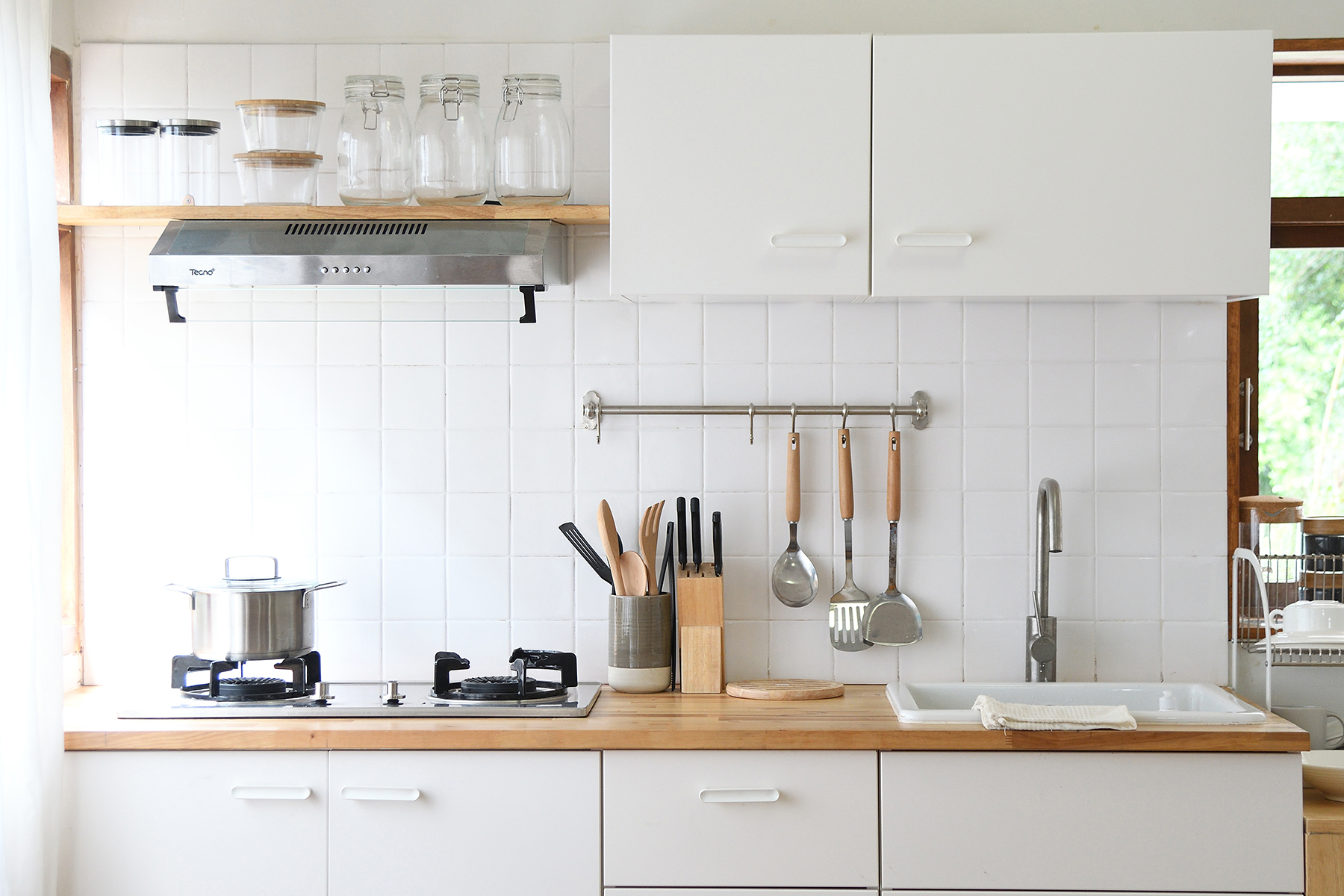
Additional protections cover tenants against unlawful removal and lease termination. For instance, a tenant can legally terminate their lease without penalty so long as they give the landlord 30 days’ notice.
All rental conditions, including lease tenure, payment dates, and fees, should be written within a tenancy agreement. If you’re late paying your rent, your landlord will usually negotiate a delayed payment. If this happens more than once, the landlord typically has a right to evict.
Landlord rights and obligations
Where Thai laws once disproportionately protected landlords, this is starting to change. Landlords can no longer change locks or seize properties if a tenant defaults on payment. Furthermore, landlords cannot freely inspect their property without prior confirmation from the tenant, and they must return deposits within seven days.
It is worth noting that these regulations only apply to professional landlords. If you rent out between one to four properties, you are exempt, but following these rules is a good idea. It’s important to include these details clearly in a tenancy agreement to avoid any issues.
As a landlord, you have the right to evict a tenant if they break the lease terms. To do this, a landlord must get a court order. From there, a landlord can involve the police if the tenant refuses to leave.
Tenancy contracts in Thailand
A tenancy contract (สัญญาเช่า) is the legal agreement made between a landlord and their tenant(s). A copy of this agreement must be provided in Thai with the following information:
- Names and addresses of the landlord and tenant
- Name and location of the property
- Details of the property’s condition, including items and equipment included
- Term of the lease with start and end dates
- Rates and deadlines for rental fees, utilities, service costs, and other payments
- Security deposit amount
A property inventory should be provided with condition details attached to this contract. Leases generally last about 12 months, but they can be as short as 30 days and as long as 30 years. You can find a contract example at Themis.
Where to go in the event of a rent dispute in Thailand
You should avoid tenancy conflicts by seeking amicable solutions directly with your landlord. However, if your problem persists, contact the Consumer Protection Board at 02-141-3437. Landlords can also receive help to ensure their contracts are legal via the same board at 02-143-9767.
Utilities and telecommunications in Thailand
Tenants are usually responsible for paying their utilities. Small-scale and independent landlords may receive bills in their name and then charge their tenants. In this case, requesting the original bill is important to ensure you are not being surcharged.
Otherwise, paying utilities is straightforward in Thailand, as national companies oversee electricity and water and send invoices to your address. You can pay these online or in person at stores and post offices.
You’ll have more choices when it comes to the internet and television. The largest national internet providers include True, Dtac, and AIS, but you’ll also find smaller companies offering mobile internet and other services. Larger providers allow you to combine TV and internet packages, and you can also purchase streaming deals like HBO on AIS.
Moving in and out of your rental property
Tenancy agreements usually last one to two years in Thailand, although you can find shorter leases if required. You can move into your new home on the date stated in your contract once you’ve paid the deposit and the first month’s rent. If you decide to move out early, you can notify your landlord 30 days in advance without penalty.

Your landlord will likely perform an inspection before you move out. While you don’t need to be there, it will allow you to negotiate any potential issues in person. Once the inventory has been checked, your security deposit should be returned within seven days.
The Consumer Protection Board can help you with any disputes, like missing deposits or unlawful penalties, and provide advice if further legal action is needed. You can submit complaints online through the organization’s English-language portal (click ‘EN’ at the top of the page).
Renting out your home in Thailand
If you want to let out a property or room, a good first step is to find a local agent to help list it. You may find it useful to research local rental prices to get a realistic idea of how much you can advertise it for.
While rental regulations will not affect you if you rent out under five properties, you should be mindful of these laws. What’s more, landlords are subject to property tax, VAT, and agency fees. You’ll need to consider these costs when listing your property for rent.
Writer
Benjamin Tree
Insider Tip
Short-term Airbnb-type rentals are illegal in Thailand. No matter how many hosts you scroll through online, listing your property is not worth the risk. Condominiums, in particular, are often self-policing, and their management board will not look kindly on you for breaking the law.
If you really want to rent out your home or room legally for under 30 days, you need a hotel license. If you rent to non-Thais, you will need to notify the local immigration authorities within 24 hours of their arrival via a TM30 form.
Tips for renters in Thailand
You can follow these tips for stress-free renting in Thailand:
- Research property portals and sign up with individual agents for email notifications.
- Do not deposit money without signing an agreement, and make sure you are dealing with the actual landlord.
- Go through the inventory carefully and take photographs upon moving in.
- Confirm any additional fees you’ll have to pay in advance, such as maintenance or service charges.
- Ensure that you have a working AC unit.
- If the property you are moving into requires repair work, get written confirmation that this will be done before you move in.
Useful resources
- Asia Exchange – different student accommodation in Bangkok
- Dot Property – Thailand’s largest property portal
- NHA – Thailand’s National Housing Authority
- NSO – the National Statistics Office with the latest housing figures
- OCPB – the official organization for consumer complaints that covers tenancy issues
